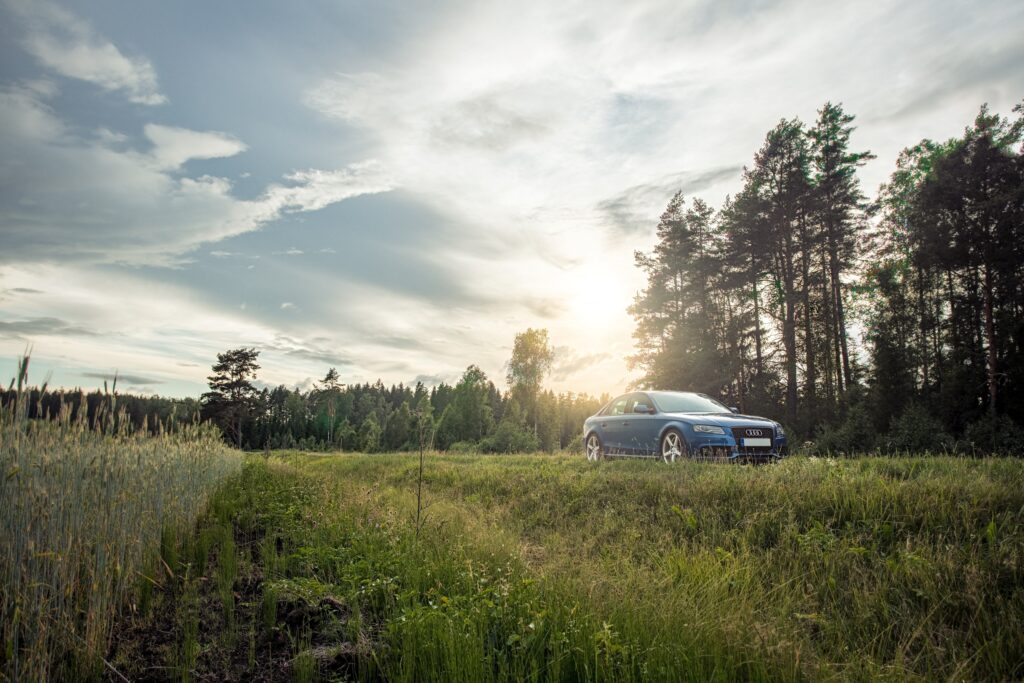A major factor in determining if someone will build long term wealth is the car they drive. How so? The vehicle someone drives is evidence of what they consider a worthy purchase. If they are unwilling to buy an older vehicle solely because it is used, then they will choose the expensive path consistently. Now, there is nothing wrong with that as long as you are willing to never build long term wealth.
I have some pretty strong opinions when it comes to vehicle purchases, and rightfully so. Between the slimy salesmen and the endless advertisements, the entire process of buying a car disgusts me.
People who drive new, off the lot vehicles for their entire lifetime will on average pay over $130,000 more than people who buy used, and that is just the average! This does not even include the difference in insurance, maintenance, fuel, and depreciation. In reality, if you do your homework and make good decisions you will pay significantly less.
Safety
It would not be fair to ignore the positives of a new vehicle over an older one, so let’s start there. Safety standards have continuously improved since, well since the first cars were put on the roads. With autonomous driving just around the corner, it can only be expected that safety will improve along the way.
My wife bought her new car about a year and a half ago. The first time I drove it, I was absolutely floored with all the things it could do. Cruise control will slow down if someone is in front of you, it will nudge you back into your lane if you are drifting, and it will even brake for you if you are not paying attention. My car did none of those things, and it is only a few years older than hers!
So how is it fair that I preach all this about buying used over new yet my wife gets a brand new car? That’s just the thing; we bought this vehicle with under 3,000 miles on it! It was essentially new, but the majority of the “new car” depreciation had already been taken off of the price tag. We got a new car with exceptional safety features for my wife and son, and I got to enjoy knowing we got a killer deal on it.
Sure, we could have saved an even larger amount had we bought a slightly older vehicle, but the safety of my family was priority and I think that is worth a little extra money.

Depreciation
New vehicles lose a significant portion of their value the minute you sign the papers to drive it off the lot. On average this amounts to 20% of the purchase price. So let’s say you want to purchase a $50,000 vehicle. Are you willing to immediately light $10,000 of your money on fire?
It sounds pretty drastic, but it is the truth. People are willing to pay a premium purely because they want to say it was a “new” car. How many advertisements do you see for used vehicles compared to new? How much money do the dealers need to be making off your “new” purchase in order to justify this obscene advertising budget?
What is honestly the difference in buying a new car compared to one with a few thousand miles on it? Even if you don’t want to buy many years behind the newest models, the difference in a barely used and new vehicle is staggering. My wife saved a bit over 30% on her vehicle, all because someone else drove it for a couple months first. Is two or three months of new car driving worth 20%?
Car Note
This is actually my favorite topic to discuss. I have said this elsewhere and I will say it again; $500 a month for 30 years put into the stock market is worth over $1,000,000. You cannot possibly justify your car purchases over your lifetime are worth this much.
The difference in paying $5,000 in cash every 3 years and paying the average monthly car payment ($563) works out to be over $20,000 every 3 years. If you would rather drive a newer vehicle, you could easily bump this up to $10,000 or $15,000 and still come out ahead. This is also ignoring the fact that most car notes last 72 months, not 3 years! If your $15,000 used car paid for in cash is compared to the 72 months of payments, you are coming out ahead $25,500 every 6 years! Don’t think you can pay for a vehicle in cash? Take a few minutes to play with your budget and you will find out you probably can.
Also consider you are required to carry comprehensive coverage while there is a loan on your vehicle. While I won’t get into whether you should carry comprehensive coverage or not, it is a factor. New vehicles also have much higher insurance premiums, so to compound on top of you being forced to have comprehensive, you are paying more anyway because there is more “value” to cover.

Gas and Maintenance
It should come as no surprise that the price of gasoline has steadily increased for years, however this is hardly a factor in the comparison of new or used vehicles. The average increase in fuel economy across manufacturers from 2014 to 2019 was 3.2%. If you buy a new vehicle solely to save gas, then financially this was the wrong call. Of course, changing from a huge truck to a much smaller sedan or an electric vehicle will save you a significant amount in gas, but going from one comparable vehicle to another is negligible.
Depending on your taste in vehicles, maintenance costs can swing in the favor of either new or used. All things equal, new cars will come out ahead on maintenance costs. However, if you have rather expensive taste in what you drive then moving from a reliable family car to a hotshot sports car or a massive truck will by far shoot your maintenance costs through the roof. If you are financially motivated, get the most boring used vehicle you can.
Nine times out of ten the used car will come out ahead on insurance premiums. On average insurance premiums decrease 3.4% for every year the vehicle’s age increases. If we assume an average cost of $2,000 per year in insurance, a five year old car will save approximately $340 a year compared to new. Unsurprising, the biggest drop comes after the first year of the vehicles life, as the most depreciation occurs in the first year.
New Versus Used Mentality
Truly the biggest way you save is through your mentality on the entire issue. If you are constantly chasing new because you “deserve it” or “it’s better” then of course you will spend more. The problem comes from reality versus mentality.
Whether you deserve something is an entirely personal issue. If you worked for years to save up to afford your dream car, then go ahead and buy it; you made a conscious decision to reach for this goal so you should see it to fruition. It won’t be the ideal decision purely from a financial perspective, but if your happiness and wellbeing will dramatically improve from it, then by all means do it.
On the other side, if you buy a new car just because you need a new car, you are wasting your time, your money, and your future. You do not need a “new” car; you need a “new to you” car. If you trade in your vehicle immediately after paying off the car note or after it needs a moderately expensive repair, you are killing your financial future.
I feel like I addressed the “it’s better” issue above, however I would like to hit it again. You can buy a new car with better miles per gallon or better safety features or better design in general, or you can get one a few months or a year after they are released for significantly less. You also avoid the initial wave of recalls and major issues that the people who purchase new get flooded with. By buying used, the previous owner gets to work out all the kinks for you.

The Road to Financial Success
The road to financial success is paved with careful decision making. In this case, it is paved by making a conscious effort to view vehicles as what they really are: a tool, not a toy. Can you enjoy driving your vehicle while still buying carefully? Of course! But the modern view of constantly trading in vehicles and switching because we don’t like the way it looks is destroying our future.




